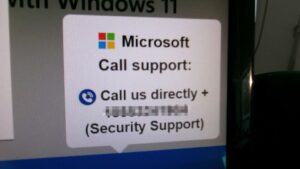
Chinese Cyber Espionage: What You Need to Know to Safeguard Your Data
U.S. telecom companies are facing relentless cyberattacks from Chinese hackers. A recent federal investigation has exposed a significant cyber espionage operation linked to the Chinese government, targeting American telecommunications networks with the aim of stealing sensitive information about U.S. citizens. A senior White House official has confirmed that at least eight telecom giants have fallen victim to these hacking efforts.
Understanding the Scope of the Threat
In a troubling revelation from the FBI, it has been reported that hackers associated with Beijing have infiltrated the systems of multiple telecom providers, gaining access to customer call records and private communications of select individuals. The focus of these hackers is not on ordinary citizens but rather on individuals engaged in governmental and political activities.
The FBI has indicated that the hackers attempted to extract information subject to U.S. law enforcement scrutiny, hinting at efforts to breach systems under the Foreign Intelligence Surveillance Act (FISA). This act allows U.S. intelligence agencies to monitor the communications of individuals suspected of foreign espionage.
Recent statements from Deputy National Security Advisor Anne Neuberger have shed light on the extensive nature of this hacking campaign. It is believed that the hackers have accessed communications from high-ranking officials and influential political figures in the U.S. While the number of affected individuals is limited, the breach poses a serious risk to national security.
Ongoing Vulnerabilities in Telecom Networks
The cyber espionage campaign is thought to have commenced around one to two years ago, with authorities suspecting a Chinese hacking group known as Salt Typhoon to be behind the operation. Experts suggest that this group was able to access sensitive information by exploiting outdated vulnerabilities in major telecommunications providers like AT&T and Verizon.
Ironically, the backdoors utilized by the hackers are the same ones employed by federal law enforcement agencies for legal surveillance. John Ackerly, CEO of Virtru, a data-centric security firm, explains that these backdoors create vulnerabilities that can be exploited by anyone, undermining the security of telecom networks.
Protecting Your Data: Expert Recommendations
To mitigate the risks posed by these cyber threats, cybersecurity experts recommend several protective measures for individuals and telecom companies alike.
Utilize End-to-End Encryption
One of the most effective ways to safeguard private conversations is by using end-to-end encrypted communication platforms. Jeff Greene, executive assistant director of cybersecurity at CISA, emphasizes the importance of prioritizing secure communication tools that keep your conversations private.
Stay Updated with Operating System Patches
Ensure that your devices are set to automatically receive timely operating system updates. These updates often include critical security patches designed to protect against newly discovered vulnerabilities.
Enable Two-Factor Authentication (2FA)
Implementing phishing-resistant 2FA on your accounts adds an essential layer of security. This helps to block unauthorized access even if your password is compromised.
Install Strong Antivirus Software
Be vigilant against phishing attempts by utilizing robust antivirus software. This can help protect your devices from malicious links and emails that seek to steal your personal information.
Encrypt Sensitive Data
For added security, encrypt sensitive files and data on your devices. This protects your information in the event of loss or theft.
Adopt Strong Password Practices
Use unique and complex passwords for each of your accounts, and consider employing a password manager to keep track of them.
Regularly Backup Your Data
Backing up your data is crucial to protect against ransomware attacks or device failures. Make it a habit to back up your mobile devices and computers.
Exercise Caution with Public Wi-Fi
When using public Wi-Fi, always employ a VPN (Virtual Private Network) to encrypt your internet traffic. This reduces the risk of hackers intercepting your data.
Consider Personal Data Removal Services
Look into services that can remove your personal information from public databases, making it less accessible to cybercriminals.
Utilize Identity Theft Protection Services
Investing in identity theft protection can help monitor your accounts for unusual activity and assist in resolving issues if your data is compromised.
Conclusion: The Urgency of the Situation
The ongoing cyberattacks against U.S. telecommunications reflect a significant threat to national security. With hackers exploiting vulnerabilities in telecom networks, it is imperative for both the government and affected companies to address these issues urgently. The security of millions of Americans is at stake, and immediate action is needed to close the backdoors that allow these cybercriminals to operate.
What are your thoughts on the current state of encryption laws and their ability to protect your privacy? Share your opinions at Cyberguy.com/Contact.
Stay informed by subscribing to my CyberGuy Report Newsletter at Cyberguy.com/Newsletter for more tech tips and security alerts.
For inquiries or story suggestions, feel free to reach out.
Copyright 2024 CyberGuy.com. All rights reserved.

